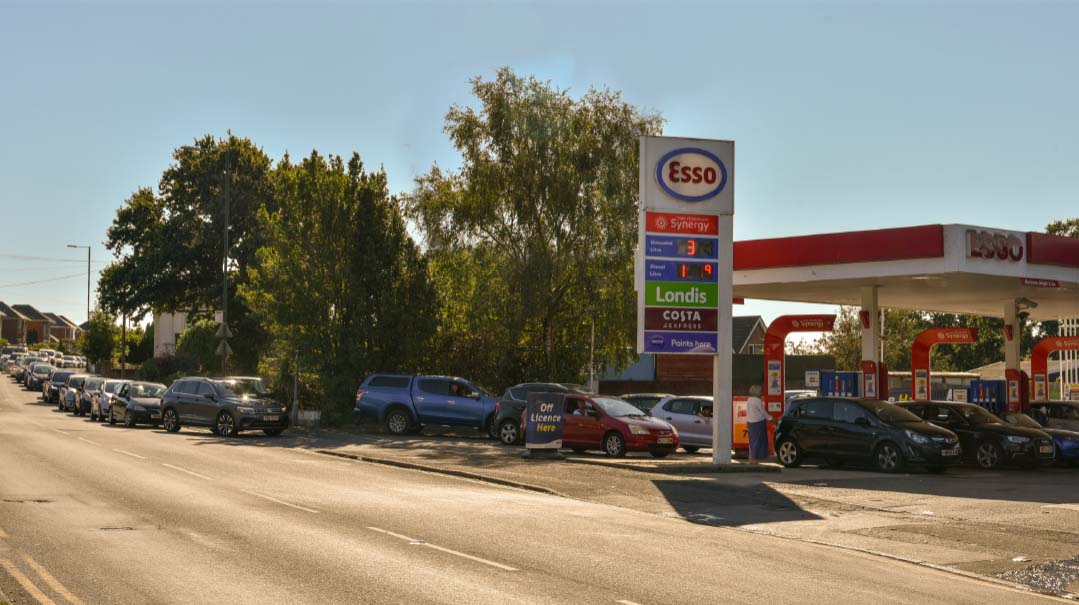Panic at the Pump

And what other surprises lie down the road?

If you spent Succos in England this year, there’s a good chance that the traditional Chol Hamoed outing to a theme park or zoo was replaced with something more exciting: a desperate hunt for fuel.
With Britain in the middle of a sudden crisis in petrol supply (as gas is known locally), the back-of-shul conversation centered on where there was fuel within range of London’s Golders Green or Stamford Hill neighborhoods; drivers ventured up the highway to Manchester to fill up; and a car journey to the shops became an existential dilemma.
But just what caused the sudden fuel crunch, when will normal service resume, and what other surprises lie down the road?
Wanted: Truckers
The immediate trigger for the crisis isn’t a war in the Middle East biting into fuel supply, but a shortage of truck drivers, to the tune of 100,000, according to a widely quoted figure from the Road Haulage Association. That delivery shortfall was exacerbated by a spike in demand as panic buying set in, with fistfights breaking out in some places as motorists queued for hours to fill up.
Brexit Blowback
But driver shortfalls are only part of the explanation. Industry data shows that Poland, for example, is short of 124,000 drivers, with no supply problems. More to the point, why did the driver shortage bite now? According to a report by trans.INFO, a transport-industry website, trans-shipment within Britain by foreign-based drivers (known as “cabotage”) has fallen as a result of Brexit. Add to that the supply-chain problems inflicted by Covid, and you have a fuel crisis, “oven-ready” as Boris Johnson likes to say.
Green Goddesses
The government’s solution — drafting soldiers in to drive extra fuel tankers — reminds me of the last time that I saw troops driving trucks in England. In a 2002 firefighters’ strike, antiquated military fire engines known as Green Goddesses driven by soldiers appeared on Britain’s streets. The sight of one specimen chugging down Coatsworth Road, the Gateshead Jewish community’s main thoroughfare, provided entertainment for bemused bochurim and delighted schoolboys.
1970s Fuel isn’t the only thing in short supply: Everything from gas for domestic power and butchers to slaughter a backlog of livestock are suddenly running short. Talk of a cold winter inevitably raises the specter of the Three-Day Week in 1974, when commercial electricity use was restricted at the height of the winter to protect power supplies threatened by strikes. It was a national trauma whose mention still evokes a shiver.
(Originally featured in Mishpacha, Issue 880)
Oops! We could not locate your form.






